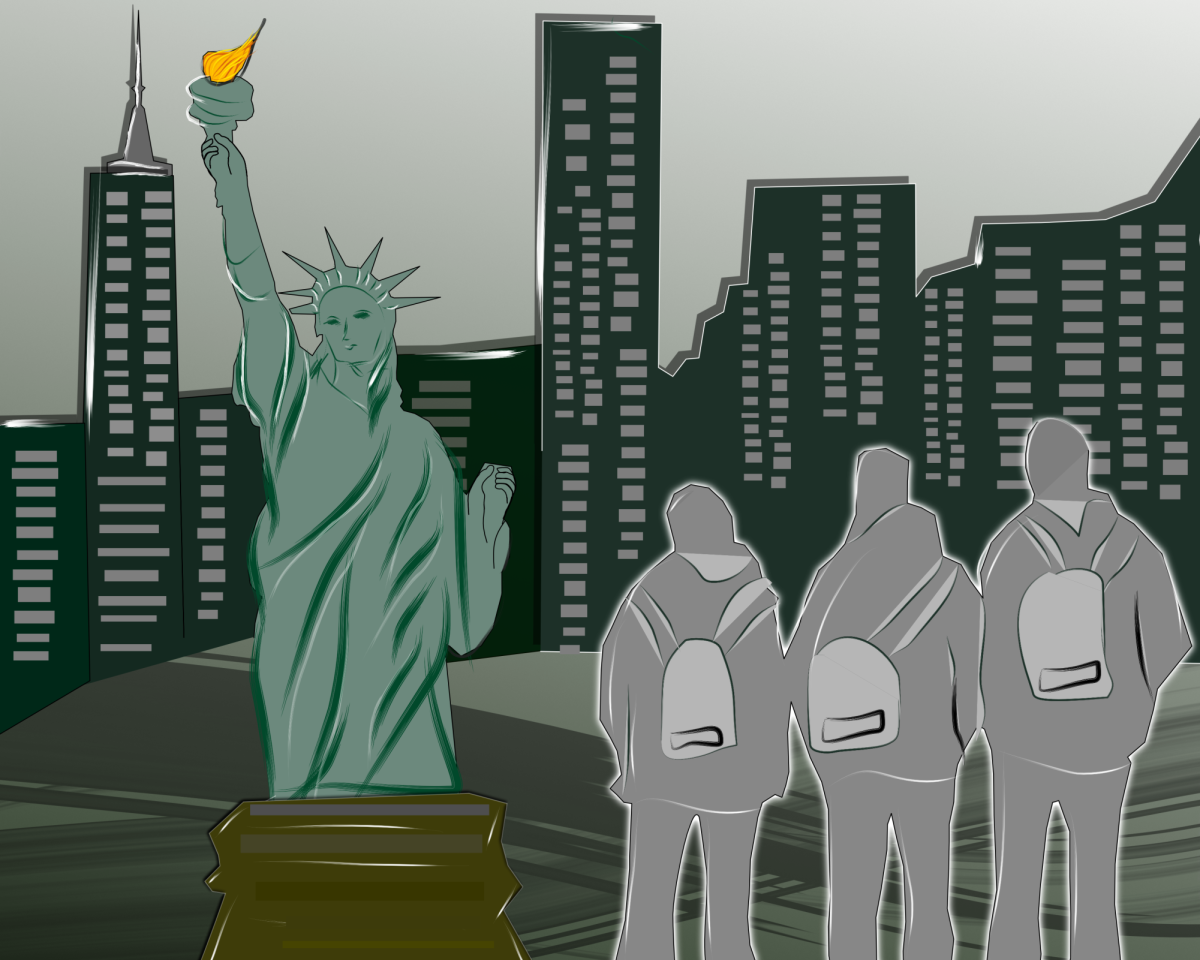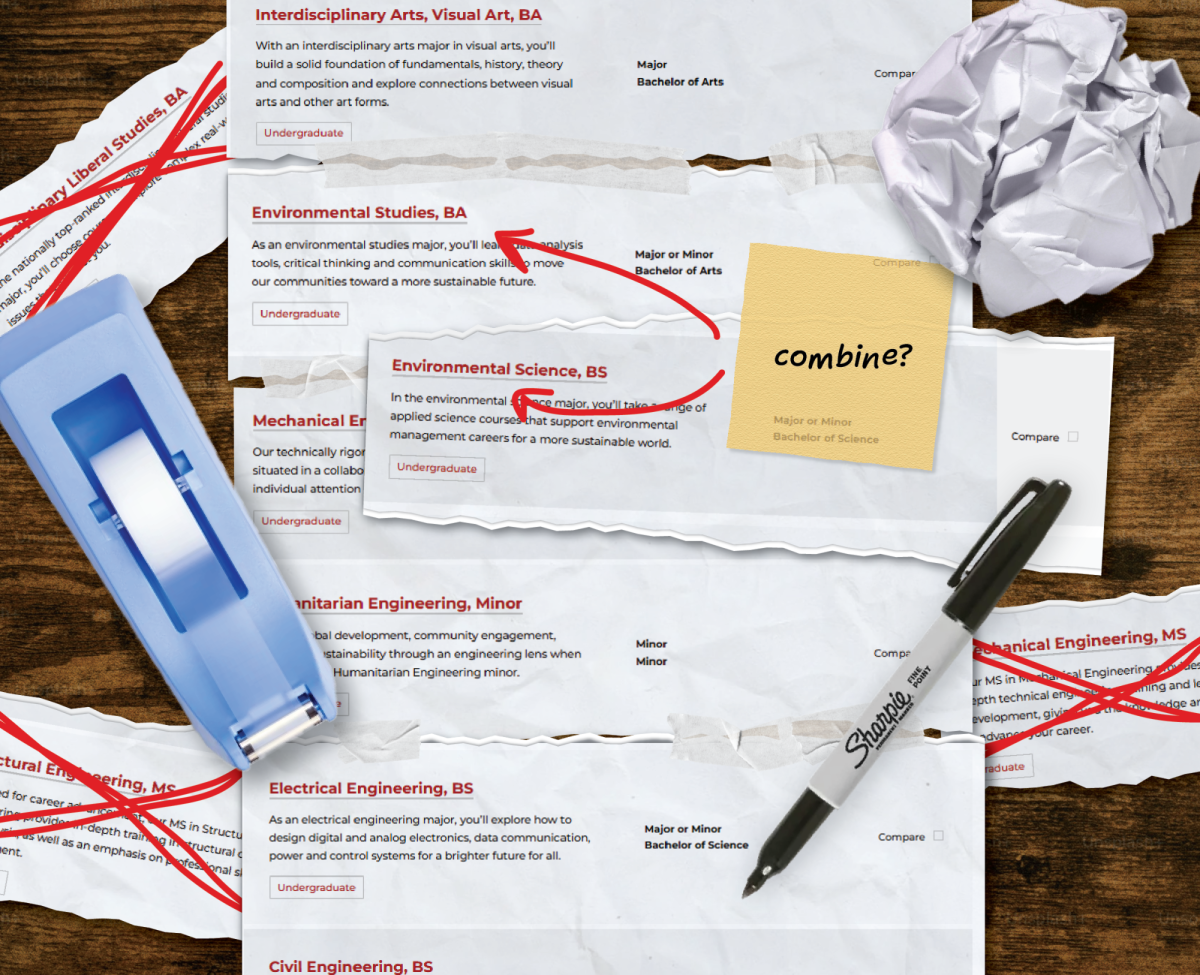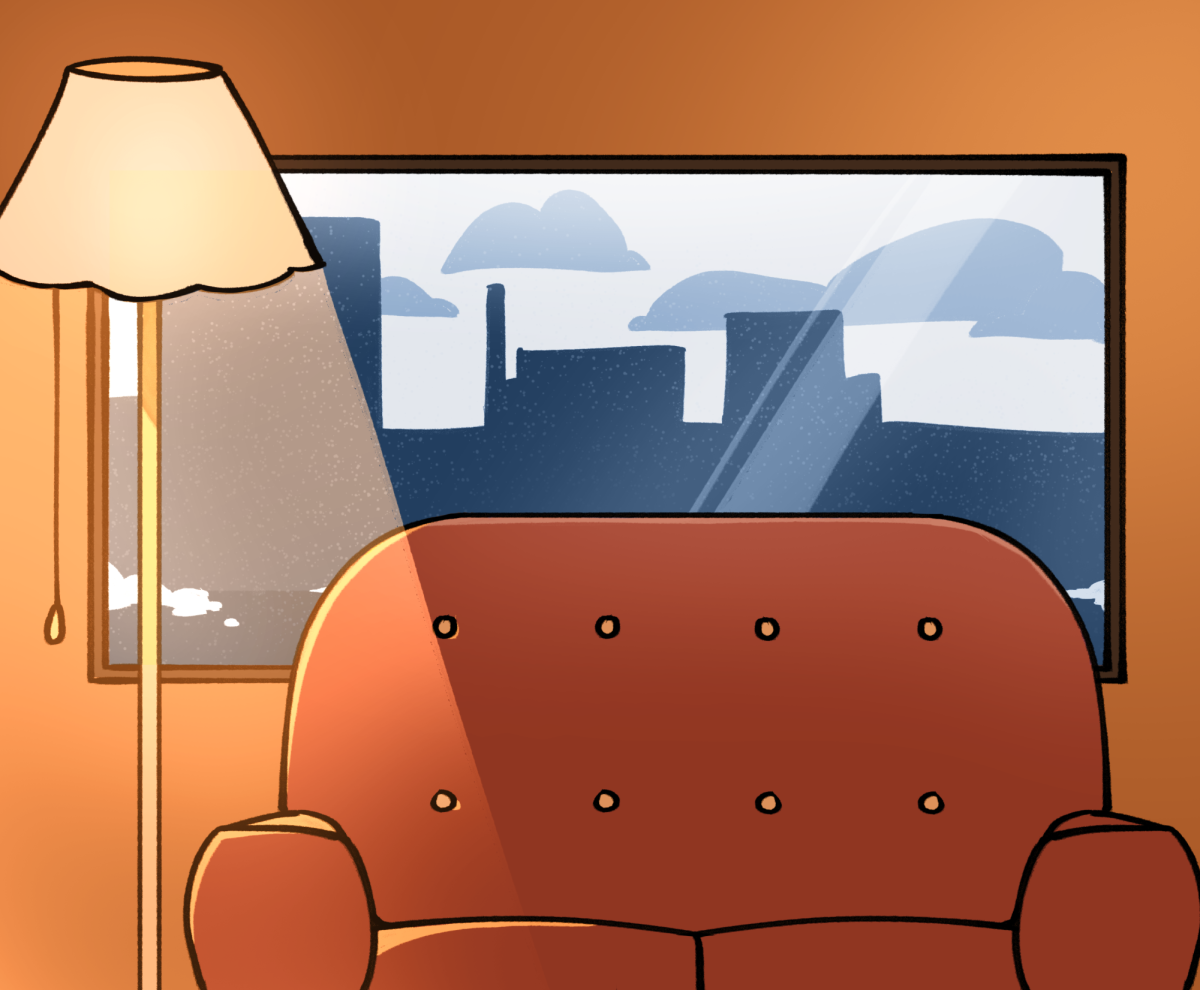Seattle University and its vulnerable populations are presented with great unease as, following an order President Donald Trump signed on Inauguration Day, Immigration and Customs Enforcement (ICE) officers now have the authority to make arrests in formerly-sensitive areas, including on school campuses.
An uncertain and threatening tension has cast a shadow over universities across the country as they prepare for the unsettling prospect of ICE presence on school grounds. Seattle U is no exception. In a Jan. 24 email, the institution outlined its plan to support non-citizen students. The directive, shaped by the Office of University Counsel (OUC), advised all faculty and staff to refuse ICE officers from entering private areas of campus, even if they have a warrant, subpoena or other legal document.
Instead, OUC recommends faculty and staff direct ICE officers to call OUC at (206) 296-2043. Private spaces include classrooms, residence halls, apartment rooms or faculty office areas. Public spaces include the student center, Lemieux Library and upper and lower malls.
OUC also offered guidance in the case that ICE officers ignore faculty and staff members attempting to prevent them from entering sensitive parts of campus.
“If ICE agents proceed into nonpublic areas without having received permission, faculty and staff should remain polite and, if possible, document ICE’s activities,” a spokesperson from OUC wrote to The Spectator.
Third-year Environmental Studies and Public Affairs Major Sabrina Castro believes that Trump’s policies are contrary to the reality that immigrants strengthen every sector of the U.S.
“It’s very heartbreaking,” Castro said. “It’s upsetting to see how this country relies on immigrants in a lot of ways, and seeing [Trump] take into office and being that [mass deportation is] the first of his priorities, it’s really upsetting.”
When asked for direct commentary on Trump’s recent immigration policies and how they may affect the Seattle U community, Seattle U President Eduardo Peñalver wrote that the institution intends to support its undocumented students and students from mixed-status households.
“Throughout our 130-year history, Seattle University has broadened our understanding of that founding vision by extending educational access to people of all beliefs, backgrounds, and identities. Caring for migrants therefore lies at the very heart of our Jesuit values,” Peñalver wrote. “In keeping with those values, we will do everything in our power and consistent with the law to protect and support our non-citizen students during this uncertain time.”
Missing from Seattle U’s Jan. 24 email was advice on how students should react if they spot ICE officers on campus. In an email to The Spectator, OUC gave students similar guidance that was recommended to faculty and staff.
“Students should follow the same recommendation the Office of University Counsel issued to faculty and staff on January 24: Remain polite but document the activities you observe. If students have specific questions about their rights when interacting with ICE, students should attend the ‘Know Your Rights’ event in Pigott on February 11, which many areas of campus are jointly sponsoring,” a spokesperson from OUC wrote.
The Housing and Residence Life (HRL) leadership team also briefed student employees on how to react if ICE officers attempt to enter nonpublic parts of campus. Student employees were given the same instructions as faculty and staff: to ask ICE agents to contact OUC at (206) 296-5590 first.
An anonymous source, a member of HRL, works closely with resident assistants and other members of hall communities. With many undocumented students living in residence halls, they expressed that there is widespread concern for protecting students against ICE.
“A lot of folks have been sharing where they have been seeing ICE officers, just to get that information out. The more we can tell others, the better,” the anonymous source said.
While the anonymous source noted that HRL is not able to advise misdirecting ICE in written communication or through formal channels, there has been heavy insinuation that they encourage staff to lead ICE away from vulnerable students.
“I may also be seeping in my own political views, but I have had senior team staff tell me ‘Yeah, tell [ICE] to go [to incorrect places].’ It’s been on the heart and mind, at least for Residence Life, whether it’s RAs or students. But I have this hope that we won’t have to address it,” the anonymous source said.
As members of HRL are actively working through different ways to offer safety to undocumented students, other spaces on campus are providing resources as well.
In an effort to better serve Seattle U’s undocumented students, the MOSAIC Center offers a training program called UndocuAlly. The program is available to faculty and staff and aims to educate participants on the undocumented experience and how to better support undocumented individuals through this uncertain time.
Michelle Kim, the director of the MOSAIC Center, discussed the content of the UndocuAlly program.
“The training covers broad history of immigration, relevant immigration policies, definition of terms, highlights common experiences of undocumented students and skills required to be an effective ally,” Kim wrote.
While the program has been running since last school year, UndocuAlly trainings may soon be expanding. Kim mentioned that MOSAIC is in the early stages of developing UndocuAlly training for students, in partnership with the Student Government of Seattle University (SGSU).
Although she hadn’t heard of the program before, Castro believes that expanding UndocuAlly trainings to students would be beneficial.
“I think it’s not too bad of an idea because it’s engaging students and bringing awareness to the issue, also since there are a lot of students whose parents are undocumented, it’s probably nice to get that information and bring it home and share it with their families,” Castro said.
Another project the MOSAIC Center is working on to help serve Seattle U’s undocumented students is the “Together We” campaign. The campaign’s goal is to show love and solidarity for undocumented students and mixed-status families through art, advocacy and social justice. “Together We” bears the symbol of the monarch butterfly, a symbol of immigration and migrant courage, justice and freedom. Art from the “Together We” campaign hangs across campus, including on the third floor of the student center.
“We want to communicate to our students that in this time of uncertainty and anxiety, the MOSAIC Center remains steadfast in our commitment to creating an inclusive campus community where all students are beloved and supported,” Kim wrote.
Overall, Kim highlights that MOSAIC’s undocumented support initiatives are constantly being strengthened in collaboration with a web of professionals across Washington state and the Association of Jesuit Colleges and Universities (AJCU) network. As one of Seattle U’s premiere entities for creating inclusion and community on campus, attention to detail has been critical in MOSAIC’s support for undocumented students.
Seattle U’s School of Law has also ramped up support programs for undocumented students and allies over the past month. The law school held the first Know Your Rights (KYR) presentation Jan. 13, which educated participants on immigration protections, upcoming changes to work authorizations and more legal tips. The next KYR session will be Feb. 11.
According to Visiting Assistant Professor of Law Zaida Rivera and Associate Professor of Law Paul Holland, KYR presentations will continue to be offered to interested students, faculty and staff.
“We will continue to provide KYR presentations throughout campus to provide updates on policies and executive orders that impact noncitizens,” Rivera and Holland wrote to The Spectator. “Seattle U’s faculty and staff are [also] encouraged to attend or request [KYR] presentations for their departments.”
Rivera is working with Seattle U departments to hold office hours for students to drop by and receive general information. Non-citizen students also have the opportunity to meet with law students for a consultation about their immigration status.
“At the consultation, students will receive preliminary advice from an attorney and, where appropriate, assistance with filling out forms or taking other basic steps to protect their own rights,” Rivera and Holland wrote. “When possible, the clinic will refer students who need further assistance to volunteer attorneys.”
While Seattle U is offering several resources for undocumented students and their allies, some students believe that more needs to be done to make those resources known.
“Mainly, my concern is [whether Seattle U] is doing enough to advertise these resources. I don’t think email is enough, I think they should bring this into classrooms,” Castro said. “I would like to see how professors are taking that information [about resources] and sharing it with their students. Me personally, I don’t think I’ve seen that yet with my professors.”
With the influx of Donald Trump’s unsparing immigration policies, non-citizens across the country are actively and unscrupulously having their livelihoods, safety and personhood threatened. It is the responsibility of the Seattle U community to protect and uplift students, faculty and staff who are most vulnerable at this time.














